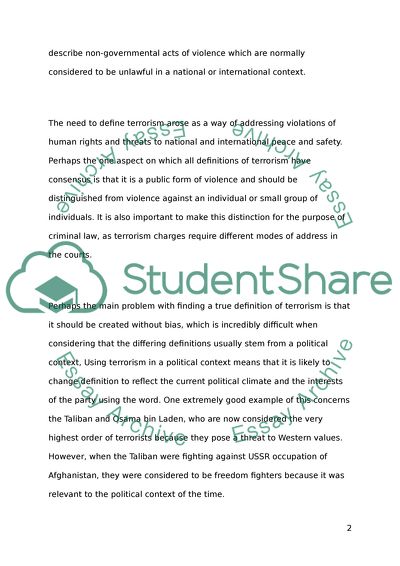Cite this document
(“Terrorism Assignment Example | Topics and Well Written Essays - 1000 words”, n.d.)
Retrieved from https://studentshare.org/sociology/1398977-terrorism
Retrieved from https://studentshare.org/sociology/1398977-terrorism
(Terrorism Assignment Example | Topics and Well Written Essays - 1000 Words)
https://studentshare.org/sociology/1398977-terrorism.
https://studentshare.org/sociology/1398977-terrorism.
“Terrorism Assignment Example | Topics and Well Written Essays - 1000 Words”, n.d. https://studentshare.org/sociology/1398977-terrorism.


